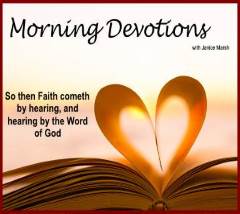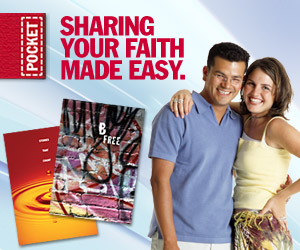|
The Methodist Preacher
Compilation and comments by Pastor Bob Wise
My studies of various religious denominations have brought me many hours of enjoyment and knowledge and some of the most impressive persons I have read about are the Old-Time Methodist “Circuit Riders”. I do not at this time know why the Methodist preacher has changed so drastically in their preaching styles, but I am in the process of researching this phenomenon and will be writing about it in the future. The old-time “Circuit Riders” remind me of today’s flamboyant Pentecostal Preachers. Preachers who share a sermon about God’s Love, God’s Grace, God’s Redemptive Powers, and who were not afraid to preach about Hell and the Devil and the
coming Judgment for all persons, saved and lost. Today’s preachers act like they are afraid to preach on repentance for fear of losing their position at the Church. The majority of sermons today are about love and love alone. Preachers must preach with a balance from the Scriptures to give their parishioners a fair and balanced message.
While studying about the Circuit Riders, I was impressed with their ability to endure all types of suffering and still remain focused on their goal. These riders traveled to unknown territory in search of anyone they could find to preach the Gospel message to. Living out of a saddlebag in those days is quite different than living out of a suitcase today. Today when we live out of a suitcase, we are actually staying in a nice fancy hotel room somewhere with hot and cold running water, electricity, heat and air conditioning and room service for our meals. Not so bad when you think about it. Circuit Riders were lucky to have an extra change of
clothes and certainly had no shelter to keep them from the elements. With just a horse and saddlebags to carry all you needed, there certainly was not room for a tent or anything else. The sacrifices made by these Preachers are to be commended. They certainly were not doing what they did for the money. I wonder if there are any persons around today who would be willing to give so much for so little in return. I would hope there are.
I do hope this information will be helpful to all who read it and that it will help each one to decide how their individual Pastor might be doing as to sharing the Gospel in a fashion that is pleasing to God.
Let us begin by reading some excerpts from a few authors of note:
Excerpts from The Circuit Riders and the Spread of Early Methodism
Weslet Conventicle, September 28, 2003
presented by Ed Stephenson
A circuit was usually between 200 and 500 miles around, and the rider was expected to complete the course in two to six weeks. The pace was always hectic. The circuit rider would go only a few miles before stopping to set up another meeting. He might preach two or three times a day. This of course meant that meetings could happen on any day of the week, not just on Sundays. While at a stop, the preacher would also check on class meetings and visit as many of the local families as possible, usually sharing a hymn and a prayer. There were relatively few days of rest in the schedule. This ensured that most people could see the Methodist preacher
about once a month.
(200 to 500 miles is a large area to travel, especially when considering that it was done on horseback. Preaching two or three times a day coupled with not enough rest, being worn out from riding all day and evening before had to be quite grueling on their bodies.) . . R. Wise
Methodism actually had little impact on the poorest of the poor whose lack of skills and education put them at the margins of society. Having not grown up as Methodists, the new recruits usually began to attend Methodist meetings out of curiosity about this boiling hot religion where people would jerk and twitch, stand up shouting, or fall to the ground where they might lie prostrate for hours. Many did so with the expressed disapproval of their families. After some time they would get caught up, having experiences of their own. These were often accompanied by dreams or the experience of hearing the voice of God convicting
them of their guilt and telling them to embark on a new path.
(I dare to guess what would happen if this type of activity happened in today’s Methodist Churches. This activity today is known to exist primarily in the Pentecostal and Charismatic circles). R. Wise
Such was the reach of this system that within a generation of the end of the Revolutionary War, a visit by the Methodist preacher was considered to be a normal, and expected, part of daily life in America. Thus it is hardly surprising that Methodism’s growth outpaced by a large margin other denominations. Perhaps more importantly, its fundamentally different style forever changed the face of American Protestantism. It stood in sharp contrast to the pattern of the established churches of the colonial period in which ministers were theologically educated at universities and the distance between the clergy and the laity was a
matter of class as much as education or wealth.
(I am afraid that today we have fallen back to those practices where education from a school of Theology is a mandate to be qualified to preach the Gospel. I certainly am glad in my heart that Jesus did not make such demands from the Disciples before they were allowed to begin their missionary journeys for we may never have heard of the Gospel had that been the case) R. Wise
The subjects were hell and the devil, with a clear eye on the coming day of judgment. This reflected Wesley’s own interest in bringing people into a direct experience of the Spirit, after which they were on the road toward Christian perfection. Life for the Methodist was a journey. The theology was practical, recognizing that even if one was brought into the church that it was still possible to falter and return to sinful ways. It emphasized discipline and moral uprightness. It valued work. As such, it fit well with the aspirations of new settlers who saw themselves as the creators of a new nation and a new economy based on
the industry and initiative of its citizens. It played to their hopes more than their despairs and frustrations. This made Methodism as much of the people as for the people. People took to it eagerly, in part because as a result of hearing about God’s plan and purpose (as well as God’s judgment), folks could see themselves as a meaningful part of a great mission to build a new world.
(Hell and the Devil? I cannot honestly tell you when I heard a sermon about Hell or the Devil in a Methodist Church. It certainly has been a number of years since and then if my memory serves me right, it was in a Pentecostal Church that I heard that sermon). R. Wise
Excerpts from Holy "knock-em-down" preachers
by John H. Wigger
"I concluded to travel five miles, as nearly as I could guess, then stop, reconnoiter the neighborhood, and find some kind person who would let me preach in his log cabin, and so on till I had performed the entire round."
Near the end of one dreary day, Young came upon a solitary cabin in the woods. He spotted a woman in the doorway and asked for lodging, but the woman refused. Desperate, Young exclaimed, "I am a Methodist preacher, sent by Bishop Asbury to try to form a circuit."
"This information appeared to electrify her," recalled Young. "Her countenance changed, and her eyes fairly sparkled. She stood for some time without speaking, and then exclaimed, ‘La, me! Has a Methodist preacher come at last?"'
(One would question if today a Methodist minister showed up at a strangers house and announced that they were a Methodist Preacher come by to see them for no apparent reason, what the response would be) R. Wise
Boiling Hot Religion
Early Methodist seriously emphasized the practical, the immediate, and the dramatic. "People love the preacher who makes them feel," observed Methodist preacher Thomas Ware. The typical circuit rider preached from a basic set of Scripture texts embellished with anecdotes and analogies from everyday life. The few expository skills he used were largely gleaned from the sermons of colleagues. But he also learned to preach with what the itinerant Henry Smith referred to as an irresistible "Holy ‘knock-em-down’ power."
Nothing would have been more anathema to Methodist itinerants than the dispassionate reading of a prepared sermon. They preached extemporaneously, without notes or manuscript. As Bishop Asbury once urged one of his preachers, "Feel for the power; feel for the power, brother."
("People love the preacher who makes them feel," I believe the phrase “makes them feel” means just exactly that. Feel like they have experienced something and it was good. “Holy, ‘knock-em-dead’ power”, Wow, now that would be an experience today wouldn’t it.)
John H. Wigger is assistant professor of history at St. Olaf College in Northfield, Minnesota
------------------------------------------
Excerpts from Nothing But Crows and Methodist Preachers
A Study in the Saddle of Circuit Riding Preachers
By Rita Juanita Mock
Earning fifteen dollars a year, being drenched with water, sore from the saddle and exhausted from the three to four hundred mile circuits they had to cover every two to six weeks, the circuit riding preachers of early America were a faithful, strong group of young men, who were committed to their ministry. They struggled along hard trails and through difficult trials, but with the purpose of telling the nation about God, they could only continue on joyfully, following God's calling in their lives.
One amusing story, about a minister named Nolley and an unhappy settler, relates this quite well.
Nolley was in a remote part of Mississippi when he noticed a recent set of wagon tracks. Being a traditional circuit rider, and "worth his salt," he wouldn't pass up the opportunity to make a new contact. He followed the tracks until they ended in a fresh clearing, where a settler was still unloading his wagon. Nolley introduced himself to the settler and was greeted with tremendous disgust as the settler burst out, "Another Methodist preacher! I left Virginia for Georgia to get clear of them. There they got my wife and daughter. So I come here, and here is one before I can get my wagon
unloaded!"
Nolley drolly replied, "My friend, if you go to Heaven you'll find Methodist preachers there; if you go to Hell, I'm afraid you'll find some there, and you see how it is on earth, so you had better make terms with us and be at peace".
- - - - - - - - -
One itinerant, Thomas Ware, sought shelter after a long and weary day at a secluded cabin in the back country of North Carolina. The man of the house made it immediately obvious that Ware was not welcome. Ware recounts that he "looked at him, and, smiling, said, 'that would depend upon our comparative strength.'" The young man was unwilling to wrestle the preacher, so Thomas Ware stayed in their cabin that night and baptized their children the next morning.
Peter Cartwright
Life on the trail for the intense preachers was in fact so rugged and exacting that half of these ministers died before the age of thirty-three. However, many of them thrived on the severity of trail life, despite the hardships, including Peter Cartwright who likely held the record for stamina, with seventy-one years of itinerancy.
Peter Cartwright was known for his uncompromising preaching. However, one day when the President of the United States, Andrew Jackson, "Old rough and ready," came to Cartwright’s church, the elders warned the Pastor not to offend the President. In those days, the President had great power to influence a denomination for good or bad. Content, that their Pastor would not say anything to discredit their church, the elders retired to the back of the sanctuary.
When Cartwright got up to speak, the first words out of his mouth were, "I understand that President Andrew Jackson is here this morning. I have been requested to be very guarded in my remarks. Let me say this: "Andrew Jackson will go to hell if he doesn’t repent of his sin!" The entire congregation gasped with shock at Cartwright’s boldness. How could this young preacher dare to offend the tough old general in public, they wondered.
After the service, everyone wondered how the President would respond to Cartwright. When Andrew Jackson met the preacher at the door he looked at him in the eye and said, "Sir, if I had a regiment of men like you, I could conquer the world!"
(Now that’s what I call having fortitude! A preacher with enough gumption to tell the truth no matter what the circumstance might be. I doubt today we would ever experience a preacher saying anything even close to that to one of our countries leaders. Have you not noticed that today, preachers do not publicly say anything about anyone in power but are the first ones to point a finger at another member of the church body. Selective processing is what I call it. We need more preachers today that are not afraid to tell any and all the truth if it needs told). R. Wise
In His Own Words. . .The Price of Being a Preacher
". . .in reference to the Methodist Episcopal Church, when we consider that her ministers were illiterate...that we were everywhere spoken against, caricatured and misrepresented; without colleges and seminaries, without religious books or periodicals, without missionary funds, and almost all other religious means; and our ministers did not for many years, on an average, receive over fifty dollars support annually, and a Methodist preacher's library almost entirely consisted of a Bible, Hymn Book, and a Discipline, may we not, without boasting, say with one of old, 'What hath God wrought?' A Methodist preacher in those days, when he felt that God had called him to preach, instead of hunting up a
college or Biblical institute, hunted up a hardy pony of a horse and some traveling apparatus and. . .cried 'Behold the Lamb of God, that taketh away the sin of the world.' In this way he went through storms of wind, hail, snow, and rain; climbed hills and mountains, traversed valleys, plunged through swamps, swam swollen streams, lay out all night, wet, weary, and hungry, held his horse by the bridle all night, or tied him to a limb, slept with his saddle blanket for a bed, his saddle or saddle bags for his pillow, and his old big coat or blanket, if he had any, for a covering. Often he slept in dirty cabins, on earthen floors, before the fire. . .His text was always ready, 'Behold the Lamb of
God.' " --From Cartwright's Autobiography
I do believe that after reading these short excerpts, that there is no doubt that times have changed. This is not to say that Methodist Preachers today are not preaching like they should or that God Himself and the Holy Spirit are not directing them, this is only to say that things are different. I shall not be the judge of this matter, only God can and will.
Please do not misinterpret my intentions with this information. I am not saying that Methodist Preachers or the Methodist Church is bad or is doing wrong. What I am saying is that in my opinion, the Methodist Church and Methodist Preachers are missing the mark in their methods and practices compared to what they could be doing. I truly believe they have just become too “soft”. You cannot “love” someone to salvation. Love is so important but an unsaved person needs to know the consequences of denial along with the teachings of love and grace. I have high regards for the Methodist Church. My
parents were Methodist. My brother is a deacon at a Methodist Church. I was raised in Farmersville, Illinois, a little town approximately 28 miles south of Springfield, Illinois. For several years I attended the Methodist Church there. Later in life, I joined the Assembly of God denomination based out of Carlinville, Illinois. I can honestly say that it may be possible that the rise of the Pentecostal Denomination was brought about by the decline of the Holy Ghost inspired Methodist Preachers, once the Circuit Riders waned. The advantage of being involved in both the Pentecostal and Methodist denominations is that I have had the opportunity to experience both styles of preaching. I agree with Bishop
Ashbury’s statement to one of his preachers, “Feel for the Power; feel for the power, brother.” In my opinion, this is what is missing in the Methodist Church today.
The Methodist Church has witnessed a decline in membership over the past several decades while Pentecostal churches have seen an incline in membership. The percentage of church going persons hasn’t changed much at all in the last 40 years, therefore leaving one to believe that there is just a swapping of affiliation going on. How does the Methodist church go about changing this trend? I believe the way is for Methodist Preachers to take a look back at how the Methodist Church here in America was built and how the preachers preached. I think today’s preachers should take a hard look at the
enthusiasm the old-time preachers displayed. The sacrifices they were willing to make. Their steadfast desire and obedience to their God and Savior. I believe this will help today’s preachers to open themselves up to the Guiding of the Holy Ghost who only awaits an opportunity to be used.
I have always been of the contention that when a person leaves after a church service, he or she should feel like they have just “had church”. Had Church. What does this actually mean? For one to say they have “had church”, one must come away from a service feeling like they have experienced a number of things. Examples are:
Feeling like you just had a wonderful time.
Feeling like you are filled with joy and love.
Feeling like you just had an actual close encounter with your Lord.
Feeling like you are refreshed.
Feeling like you are renewed in your Spirit.
Feeling like you have just drawn closer to others in the Church and to your Lord.
Feeling like you just learned something new and it was good.
If you come away from a Church Service with these feelings, I guarantee you; you have just “had church.”
I believe the “old-timers” were more on key with their preaching. A lot of testimony has been shared from the early days of Methodism in America and the majority of the writings show a church with a burning desire to share the Gospel. A church willing to show all aspects of the Gospel, not just one side where everything is love. Today’s church seem to be teaching that there might be no price to be paid for sinning as you never hear a sermon about going to Hell or a sermon about failing to serve God and the consequences thereof. Jesus taught a great deal on sin and the consequences of such. You
decide. Read your Bible daily. Get in touch with your Lord. Open yourself up to the leading of the Holy Ghost. Pray for guidance. Share your knowledge with others around you.
So, bottom line. A step back or a step forward? Which path has the Methodist preacher taken today? Has he/she taken a step backwards or are they moving in the right direction? You decide. Let your Pastors know how you feel. They really do need your input.
|







